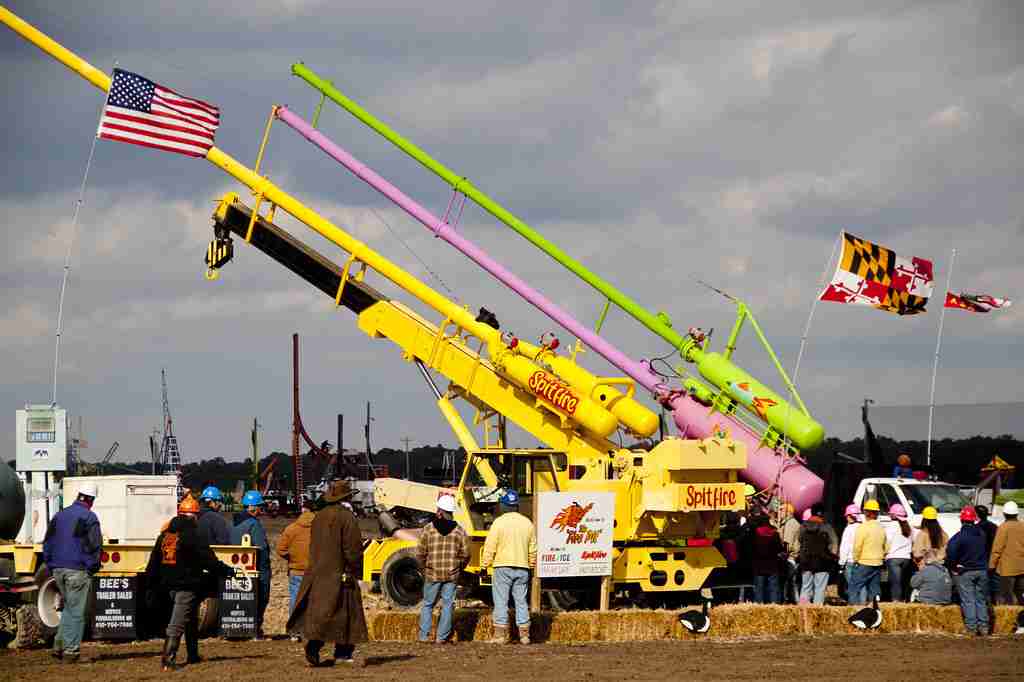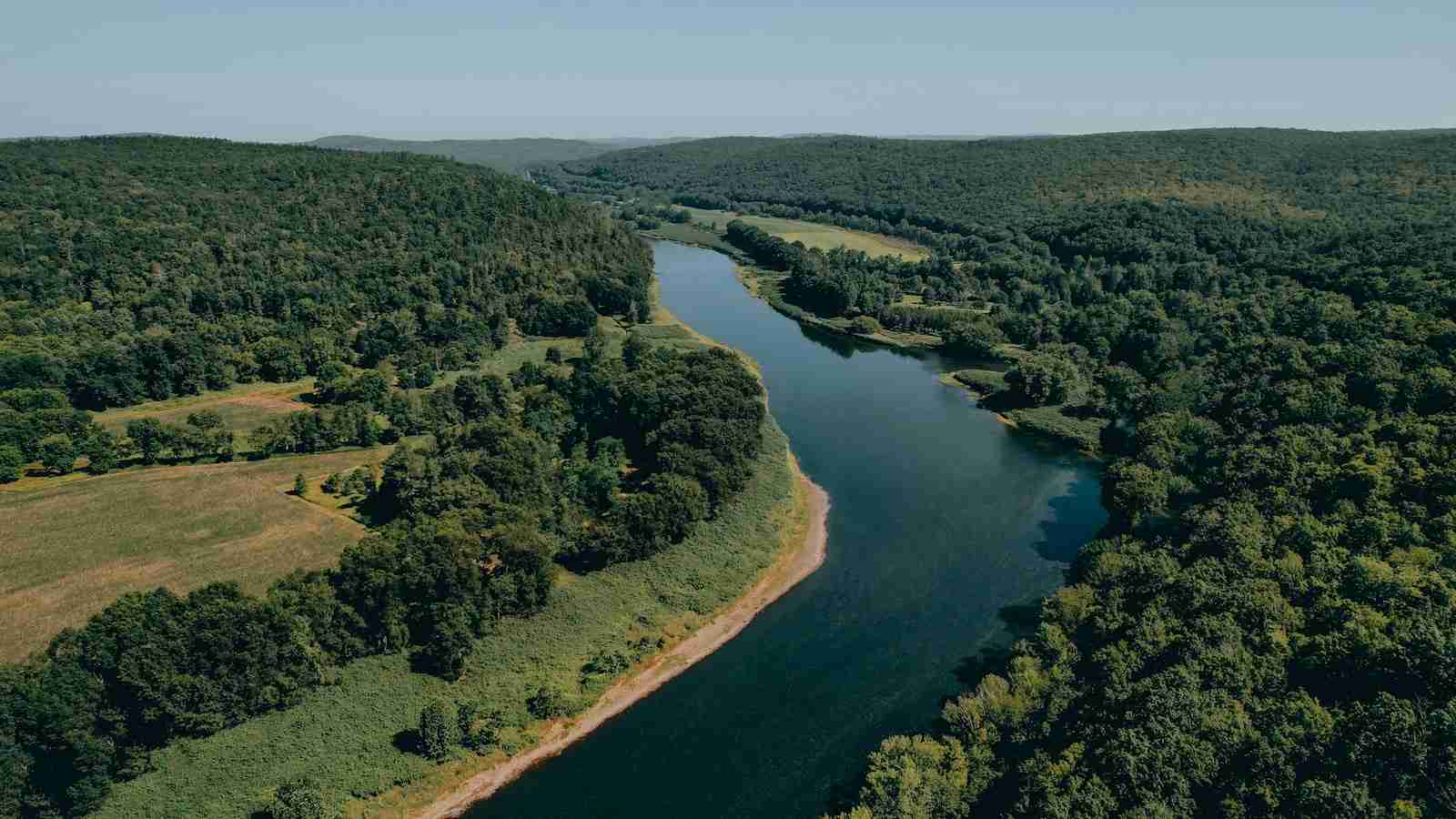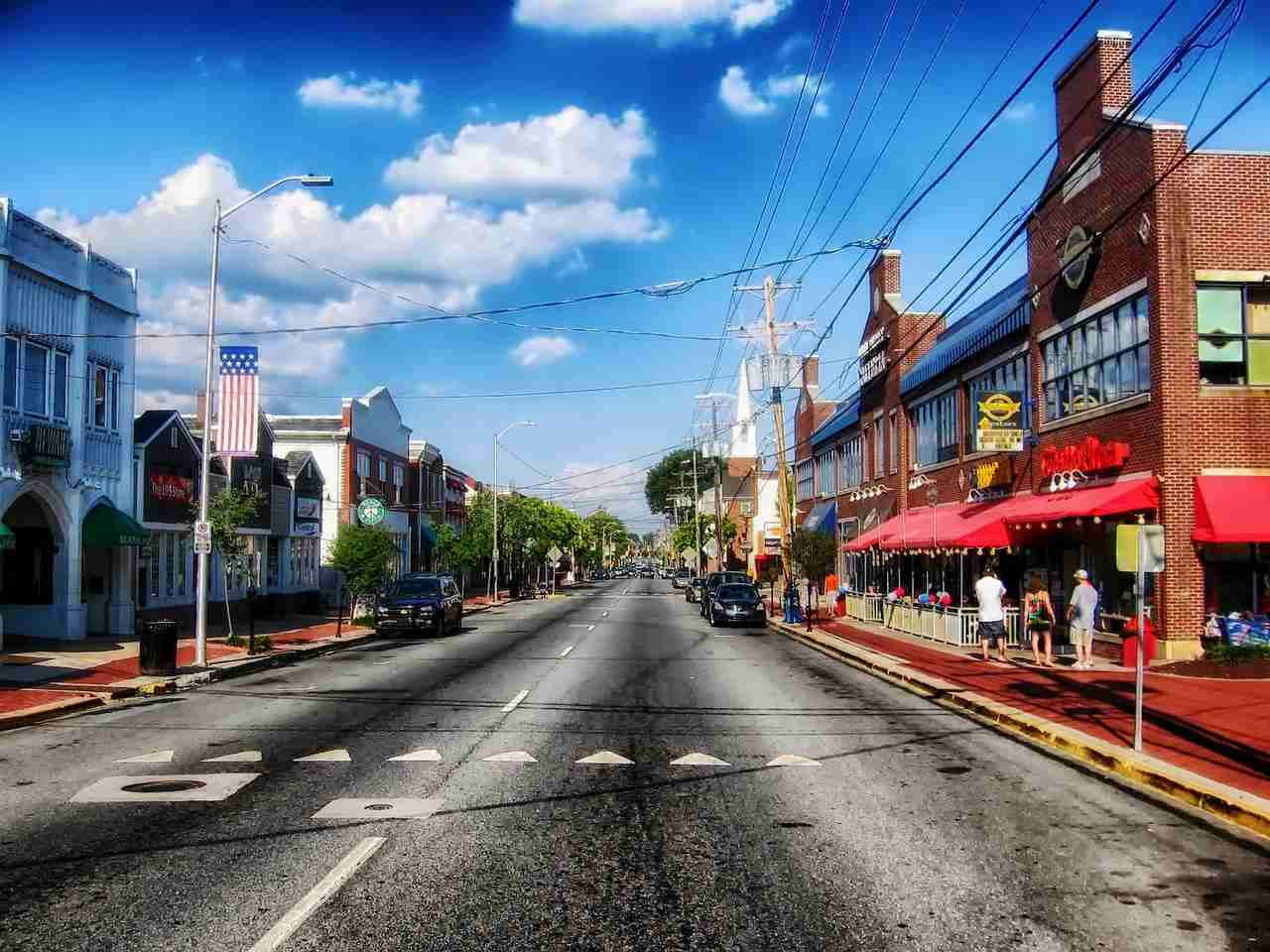22 Fun Facts About Delaware You Won’t Believe
1. The state is home to the Dover International Speedway.
Delaware is home to the Dover International Speedway, also known as the Monster Mile, a high-banked, one-mile concrete oval track. This iconic racing venue hosts NASCAR events and attracts racing fans from across the country.
Attending a race at the Dover International Speedway is an exhilarating experience, offering adrenaline-pumping action and showcasing Delaware’s passion for motorsports and entertainment.
2. Delaware is the second smallest state in the United States.
With a total area of only 1,949 square miles, Delaware ranks as the second smallest state in the nation, larger only than Rhode Island. This compact size contributes to a close-knit community atmosphere.
Despite its small size, Delaware boasts a rich diversity of landscapes, from sandy beaches to lush forests, offering an array of activities for nature enthusiasts.
3. The state has no sales tax.
Delaware is one of the few states in the U.S that does not impose a sales tax, making it a popular shopping destination for residents and visitors alike. This policy has been in place since 1953 and is a significant aspect of the state’s economy.
The absence of sales tax not only boosts consumer spending but also attracts businesses seeking a favorable tax environment, contributing to the state’s economic health.
4. Delaware was the first state to ratify the United States Constitution.
On December 7, 1787, Delaware earned the nickname “The First State” by being the first to ratify the U.S. Constitution. This pivotal moment in American history set the stage for the creation of the United States as it is known today.
Delaware’s early commitment to the Union remains a point of pride among residents, symbolizing their state’s longstanding dedication to national unity and governance. This is one of the fun facts about Delaware that underscores its fundamental role in American history.
5. The state is known for its unique regional cuisine.
Delaware’s culinary scene is a melting pot of influences, blending flavors from the Mid-Atlantic region with coastal seafood specialties. From scrapple and muskrat to beach fries and crab cakes, Delaware offers a delicious array of dishes to satisfy any palate.
Exploring Delaware’s culinary delights is not only a treat for the taste buds but also a journey through the state’s history and cultural heritage, showcasing its rich and diverse culinary traditions.
6. The state is a leader in chemical manufacturing.
Delaware is renowned for its chemical manufacturing industry, primarily due to the influence of the DuPont Company, which was founded in Wilmington in 1802. This industry has played a crucial role in shaping the state’s economy and global reputation.
The innovative practices and products developed in Delaware have had a lasting impact on the chemical industry worldwide, demonstrating the state’s industrial prowess.
7. Delaware was the last state to have a national park.
It wasn’t until 2013 that Delaware became part of the U.S. National Park System, making it the last state to receive a national park designation. The First State National Historical Park tells the story of Delaware’s early Dutch, Swedish, Finnish, and English settlements.
This park not only preserves important historical sites but also offers a scenic retreat for visitors and locals to explore Delaware’s rich cultural heritage.
8. The Punkin Chunkin Championship was held in Delaware.

Delaware was famously home to the annual World Championship Punkin Chunkin event, where participants compete to hurl pumpkins as far as possible using various mechanical contrivances. The event, which started in 1986, has become a cherished tradition and a unique aspect of Delaware’s cultural identity.
The competition draws large crowds and fosters a community spirit centered around innovation, fun, and seasonal celebration.
9. The state has a unique judicial court system.
Delaware’s Court of Chancery is one of the oldest courts in the country and is renowned for its handling of corporate litigation. Established in 1792, the court does not use juries, but rather chancellors make decisions.
This court’s rulings on corporate matters influence national and international business law, highlighting Delaware’s central role in corporate governance.
10. Delaware’s coastline is part of the Atlantic Flyway.
Delaware’s coastline is a crucial stopover for millions of migratory birds along the Atlantic Flyway. This makes it an important area for bird watching, especially during the migration seasons in spring and fall.
The state’s commitment to preserving these natural habitats ensures that Delaware remains a haven for bird enthusiasts and a vital ecological asset.
11. The state played a significant role in the Underground Railroad.
Delaware was an important stop on the Underground Railroad during the 19th century, providing a pathway to freedom for many enslaved people. This historical role is commemorated through various landmarks and museums throughout the state.
The courage and determination exhibited by the conductors and participants of the Underground Railroad in Delaware are remembered as a pivotal part of the state’s legacy.
12. Dover Air Force Base is a key military facility.

Located in the state capital, Dover Air Force Base is one of the largest Air Force bases in the United States and plays a critical role in military operations, cargo transport, and humanitarian missions worldwide.
The base’s presence in Delaware highlights its strategic importance to national security and its role in supporting military and humanitarian efforts globally.
13. The Delaware Memorial Bridge is a major regional landmark.
The Delaware Memorial Bridge, connecting Delaware with New Jersey, is a significant architectural feat and a vital transportation link in the northeastern United States. Completed in 1951, the bridge symbolizes progress and connectivity.
This major thoroughfare not only facilitates commerce and travel in the region but also stands as a testament to mid-20th-century engineering and design achievements. Delaware facts like this bridge’s history showcase the state’s role in regional development and infrastructure.
14. The state hosts the annual Firefly Music Festival.
Every year, Delaware comes alive with the sounds of the Firefly Music Festival, a multi-day event that attracts music lovers from far and wide. This festival boasts an impressive lineup of artists across various genres, creating an unforgettable experience for attendees.
Delaware’s fun facts include its vibrant cultural scene, with events like Firefly contributing to the state’s reputation as a hub for entertainment and creative expression.
15. Delaware has the fewest counties of any state in the U.S.
With only three counties—New Castle, Kent, and Sussex—Delaware holds the distinction of having the fewest counties of any state. This compact county structure reflects the state’s small size and efficient governance.
Despite its diminutive size, each county in Delaware offers its own unique attractions and charm, contributing to the state’s diverse character and appeal.
16. Delaware’s official state bird is the Blue Hen Chicken.

The Blue Hen Chicken became Delaware’s state bird in 1939, chosen for its historical significance during the American Revolutionary War. Soldiers from Delaware were known as the “Blue Hen’s Chickens” because of their brave and fierce fighting style.
This emblem reflects not only a piece of Delaware’s history but also symbolizes the state’s enduring spirit and resilience.
17. Delaware has a rich maritime history.
Delaware’s history is closely intertwined with its maritime heritage, dating back to its days as a major colonial port. From shipbuilding to maritime commerce, the state’s coastal location has played a pivotal role in its economic development and cultural identity.
Exploring Delaware’s maritime history reveals a tapestry of seafaring traditions, tales of exploration, and the enduring legacy of those who have navigated its waters throughout the centuries.
18. The state is home to tax-free corporate law.
Delaware’s corporate-friendly laws have made it a preferred destination for businesses seeking favorable legal frameworks. The state’s Court of Chancery is renowned for its expertise in corporate law, attracting companies from around the world to incorporate in Delaware.
Delaware fun facts include its status as a corporate powerhouse, with a significant portion of Fortune 500 companies choosing to incorporate in the state, drawn by its favorable legal environment and established legal precedent.
19. Delaware is known for its historic lighthouses.
Delaware’s coastline is dotted with historic lighthouses, serving as beacons of safety for sailors navigating its waters. From the iconic Cape Henlopen Lighthouse to the picturesque Fenwick Island Lighthouse, these maritime landmarks are steeped in history and charm.
Visiting Delaware’s historic lighthouses offers a glimpse into the state’s maritime past and provides opportunities for scenic coastal exploration, making it a must-see for history buffs and nature enthusiasts alike.
20. The state is named after the Delaware River and Bay.

The Delaware River and Bay were named in honor of Sir Thomas West, Lord De La Warr, who was the governor of the Colony of Virginia in the early 1600s. This name was later adopted by the state itself.
Delaware’s geographic and historical significance is deeply tied to its waterways, which have been vital for trade and transportation throughout its history.
21. The state is known for its horseshoe crabs.
Delaware’s beaches are famous for the annual spawning of horseshoe crabs, a prehistoric species that has remained virtually unchanged for millions of years. This natural phenomenon attracts researchers and wildlife enthusiasts to witness the spectacle.
Delaware’s horseshoe crab spawning season is not only a marvel of nature but also a critical event for migratory shorebirds, which rely on horseshoe crab eggs for sustenance during their long migrations, highlighting the interconnectedness of ecosystems.
22. Delaware is the site of the first scheduled steam railroad in the United States.
The New Castle and Frenchtown Railroad, chartered in 1828, became the first scheduled steam railroad in the United States when it began operations in Delaware. This historic achievement revolutionized transportation and paved the way for the expansion of railways across the country.
Delaware’s role in the early development of railroads underscores its contributions to transportation history and its legacy of innovation, marking a significant milestone in the evolution of modern transportation systems.
FAQs
Delaware is famous for being the first state to ratify the United States Constitution on December 7, 1787. It’s also known for its lack of sales tax, the annual Firefly Music Festival, and the historical significance of its role in the American Revolution.
Delaware is unique for its business-friendly corporate laws, making it a haven for company incorporations. It also boasts the lowest mean elevation among U.S. states and is home to the Blue Hen Chicken, the state bird.
The Delaware Colony was originally settled by the Dutch in 1631 and later taken over by the English in 1664. It played a crucial role in early American history, being part of the middle colonies and a key area for agriculture and trade.
Delaware was originally founded by the Dutch to expand trade and settlement opportunities in the New World. Later, the English took control, and it became part of the proprietary colony of Pennsylvania before becoming an independent colony in 1704.
Delaware is in the Eastern Time Zone (ET), which is UTC-5 during Standard Time and UTC-4 during Daylight Saving Time.







